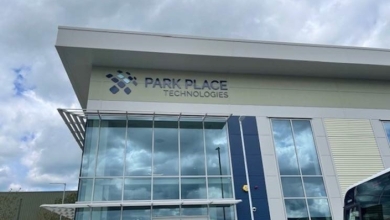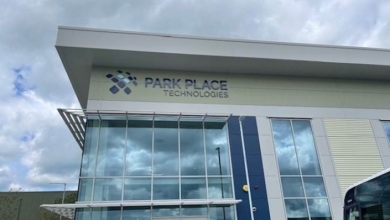
By Chad Jones, senior director, channel, EMEA at Park Place Technologies
Keeping businesses relevant and resilient is more important than ever as digital technologies accelerate the pace of innovation. But as the UK moves beyond the pandemic, keeping up takes time and skills that are in short supply – not to mention the increasing pressure on budgets. With some out-of-the-box thinking and deep sector expertise, channel partners are perfectly placed to help customers realise their full potential. They need to go beyond giving customers what they want and instead help them to understand better what they need.
In the last year, critical investments in digital technologies and experimentation have played a key role in helping companies to successfully navigate through the crisis. The speed of digital adoption has leap-frogged three years and fundamentally changed the ways businesses operate, according to a McKinsey Global Survey of executives. Of those who reported responding effectively to the Covid crisis, 72% were the first in their industries to experiment with new technologies during the crisis and 67% invested more than industry peers in digital related capital expenditure. There is a clear correlation between innovation, digital investments and resilience.
But it’s not enough to throw money at new solutions. Businesses need expert guidance from channel partners to truly capture the opportunity. International Data Corporation (IDC) expects a decline of 2.7% in worldwide IT spending with every industry impacted. Hospitality, tourism-related industries and personal and consumer services are also expected to decline by 5% or more. This means super savvy solutions that do more with less are vital to help businesses level up and rebound with more resilience and agility. To do this, they need time, expertise and innovation.
WINNING BACK TIME
Due to the pandemic, more than 59 zettabytes (ZB) of data were created, captured, copied and consumed in 2020 according to IDC. What’s more, the amount of data created over the next three years will be more than the data created over the past 30 years – and there will be more than three times the data created over the next five years than in the previous five.
As data becomes increasingly complex, one of the major business challenges for those working with enterprise data is balancing the time to innovate with time spent on day-to-day data management. The 2020 NewVantage Partners survey of C-suite executives representing more than 70 Fortune 1,000 companies found that 90.9% of firms cite people and process challenges as the biggest barriers to becoming data-driven organizations. To help channel customers to navigate these challenges, providing solutions that give time back by boosting efficiencies will be key.
Simplifying digital infrastructure and data management strategies will help businesses take advantage of new opportunities, stay competitive and be resilient. For example, having an accurate view of a business’ entire digital infrastructure is critical to the effective management of asset life cycles. This is particularly so as digital environments become more intricate, with new data-driven technologies coming on stream. Moving from manual to automated asset management gives a comprehensive, real-time view of all physical, virtual, cloud and edge devices. This should in turn free up human and financial resources, enabling businesses to focus on more future-facing data strategies and innovations rather than solving IT infrastructure chaos.
PUTTING EXPERTISE INTO ACTION
To really make smart IT investments that boost efficiencies, lower costs and make way for business innovation, customers need channel expertise that’s imbued with deep sector knowledge. For channel partners, vertical specialisation is increasingly important when it comes to providing truly tailored solutions. There are opportunities and danger zones specific to any given sector, whether that’s compliance, regulations or standard operating procedures. Giving customers want they want means taking these intricacies into account and providing deep tech insights with a vertical hat on.
This is especially important given that digital transformations must be holistic – taking all corners of a business into account – and are often underway despite a shortage of critical data skillsets. A lack of qualified personnel increased from a barrier to innovation for 10% of broader innovators in 2014-16, to a barrier for 14% in 2016-18 in the most recent UK Innovation Survey 2019 (published in 2020). As the data landscape becomes more complex, these skills will become more critical, and for those businesses suffering a shortage, capturing the expertise from channel partners will be essential.
LEADING THE WAY WITH INNOVATION
Ultimately, businesses want to gain the competitive edge and lead the way with future-ready innovations. But the reality was that in 2016-18, 38% of UK businesses were innovation active, a decrease compared to 49% in 2014-16, and the lowest level since 37% in 2008-10, according to the UK Innovation Survey 2019. There’s no doubt that since the pandemic struck, there’s been a surge in innovation. The 2021 Gartner CIO Agenda survey found that 76% of respondents said that demand for new digital products and services increased in 2020, with even more respondents (83%) reporting that it will increase in 2021.
However, a separate survey by McKinsey suggests that while business leaders are aware of the opportunity, they’re not confident that they’re prepared to go out and capture the growth. Of those surveyed, 90% think that the pandemic will fundamentally change the way they do business over the next five years. But only 21% reported feeling confident that they’re prepared to capture new growth opportunities, compared to 47% of respondents who are confident they have the resources, expertise and commitment to carry out core business activities. This highlights an area in which channel partners can work to support customers, helping them feel more confident about growth opportunities. They can do this by providing expertise and support that promises to take them beyond current capabilities. History suggests that those that invest in times of crisis outperform peers during recovery. Now is the time for building the foundation for postcrisis growth to remain competitive in the recovery period.
Ultimately, giving customers what they want means boosting core efficiencies in the short-term, and providing customised solutions that set them up to bounce back in the long-term. The combination of sector expertise, resource enhancing strategies and out-of-the-box thinking will be critical to keeping tech investments strong. Solutions that promise to turbocharge asset discovery, monitor hardware and network management, as well support optimisations, are the strings to the bow of knowledgeable channel partners, promising simplification of data landscapes and time back for greater innovation. This will not only give partners what they want, but what they need and more.


